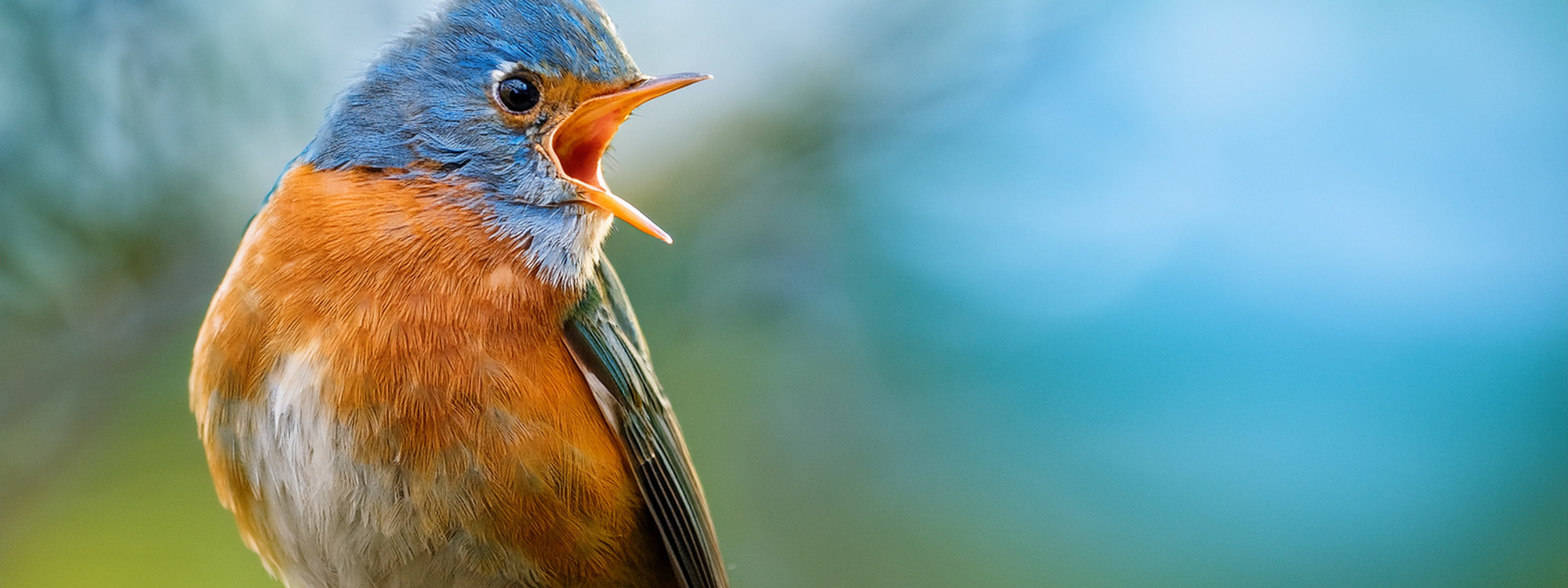| |
Paedophiles do not pursue the lives of cuckoos purposefully. We begin loved and welcomed. We are babies, then children and we grow up alongside you. When I was ten, attending the small village school, Mrs Vernon (her real name) decided to teach us to sing Cuckoo.
We were a small and middling junior school choir of ten and eleven year olds, girls in blue and white pinstriped summer dresses, boys in blue shirts and burgundy/blue ties that were loosened in the Summer. There were 30 of us in each year group; our playground had a wooded area and adjoined a large, rolling country park. I walked home each day and I was safe.
The song was written by Benjamin Britten for unbroken voices, part of a set much used by music teachers then, based on a nursery rhyme he found in an obscure book.
Like a nursery rhyme, it was composed to be easy to sing, but unlike nursery rhymes, the music avoids banality. To a set of slowly descending piano chords, it runs:
Cuckoo, Cuckoo,
What do you do?
In April, I open my bill.
In May, I sing night and day.
In June, I change my tune.
In July, far, far I fly.
In August away I must.
Only, in the last line, the word awaaaaaay is extended over a longing melisma over eight notes, falling mournfully to the lowest note of the melody, the root of the relative minor key to the major key in which the song starts.
The accompaniment begins major, flips minor for the April line, returns to major for May, June and July then slides—via an ambigious chord on the supertonic—back to minor for the departure of the Cuckoo in August, before resolving to a spare, sombre major at the end of the song.
Throughout, another group of voices continue to sing a soft, repeating 'cuckoo', which harmonises with every chord.
The progressions and the slow pace give the song a bittersweet and childlike quality. I swallowed the song whole and never forgot a word or note of it for the rest of my life. It communicates loss. I think at ten I was dimly aware that I was about to lose my childhood. I had not yet begun to grieve it.
When I learned it, I was a year away from my first truly sexual feelings—but I was sensual. A sucker for cuddles, sunshine and attention, I also loved to show off. The previous Summer I had sung and occasionally shouted the part of Mr Toad at the local annual music camp. People loved it. I thought I was talented, although I now see I was just confident.
Perhaps this was why I understood why a cuckoo might spend two whole months of Spring and Summer simply singing, one tune then another. I also knew that birds fly away, so July and August made sense. In those days I frequently dreamed about being able to fly.
But it seemed odd to me that it would take a cuckoo all of April simply to open its bill before making a sound.
Yet today is the last day of April, an unusually Summery one. Having vowed I would start this earlier, I am now starting to write about my life. I hope to talk about memories I never previously articulated, because I never really could. Writing by paedophiles tends to come in a small number of pre-set moulds. Most of us pick out only the parts of our story that are about our paedophilia and present them so they align with the stories we have read by others, to achieve a particular effect for the reader.
This doesn't satisfy me. I'm other things besides a paedophile. Irrelevant things can be interesting too; things from before paedophilia came along—for it is not perfectly true to say we are born this way, even if we are not exactly made this way either.
Of course, Benjamin Britten, who composed the song, was himself interested in male children. Scruffy, chatter-filled, ten-year-old me might have interested him, had we met—had he not died soon after I was born. In a complementary way, I yearned at that age to engage with old-fashioned, corduroy-jacketed, cerebral men like him, and was impatient to become one. Unlike my peers, focused on the pop and football and cartoons of the present, I developed an early nostalgia for other people's memories and was easily romanced by the styles and language of the past that I was reading at that age in Agatha Christie novels. Tell us about the olden days, I would often ask our mother as she dried me after a bath, not yet realising why she was glad she had escaped them.
She had felt out of place in her family and home. So did my father. Three years earlier, in July, soon after my mother and I flew back from visiting American relatives near Seattle, he left a note revealing he had been having an affair and had left. I remember feigning upset about for the sake of keeping my mother company, even though I found it unsurprising. He visited us at home for my eighth birthday party in August, for the first time having to knock on the door for entry. I was dressed as C-3PO and it was not awkward to me. He left again, and the next month I already had a stepdad. Things moved on.
I think I am starting with the Summer when I was still ten, however, because then I was happiest and my life made sense. The future was full of potential successes that in retrospect seem unlikely. I was a strange child. That suited me, and it charmed grownups. I was ahead of my years. I paid little mind to boys who were younger than me, except perhaps for some pangs of jealousy. I wasn't quite like the other children, but all boys are strange in some ways so I was able to believe I belonged.
I am now nearly forty years on from that time, and have spent many of the years since regretting that I couldn't stay there. A longing for some ideal of childhood is as present for me as it was for Britten—and just as weirdly entangled with romantic and sexual desire in ways I cannot explain. For creative writers seeking an audience, these awkward feelings normally have to be buried in metaphors if they are to be read at all. I've decided to risk doing without an audience by naming them directly.
The feeling of being an undetected outsider is very familiar to people like me, and also to cuckoos. Baby cuckoos are thrust into a strange nest with no consciousness, and only the same instinct to survive and grow that any bird has. Although humans deplore the way cuckoos burgle their childhoods from other birds, what else are they to do? They didn't decide the circumstances that place them inside enemy nests, and everyone has to eat, and seek warmth.
Paedophiles do not pursue the lives of cuckoos purposefully. We begin loved and welcomed. We are babies, then children and we grow up alongside you, singing the same notes; gulping the same air between phrases; puzzling out the meaning of the the things adults make us repeat. We sing night and day, until we learn to quieten down. If we cannot later be silent, then away we must.
May begins tomorrow, and I am going to start writing, at first poems about different parts of my life. My poems should not be trusted as fact, but in June I will change my tune and start putting the more prosaic truths into faithful prose. Then I intend to spend July visiting some places that lie deep in my memory, and will share some photographs. Take a breath and join in if you wish. | |






 poem: glass door, 1983
poem: glass door, 1983 good freaks and good friends
good freaks and good friends childlike self-concepts, pt. 1: an anecdotal introduction
childlike self-concepts, pt. 1: an anecdotal introduction